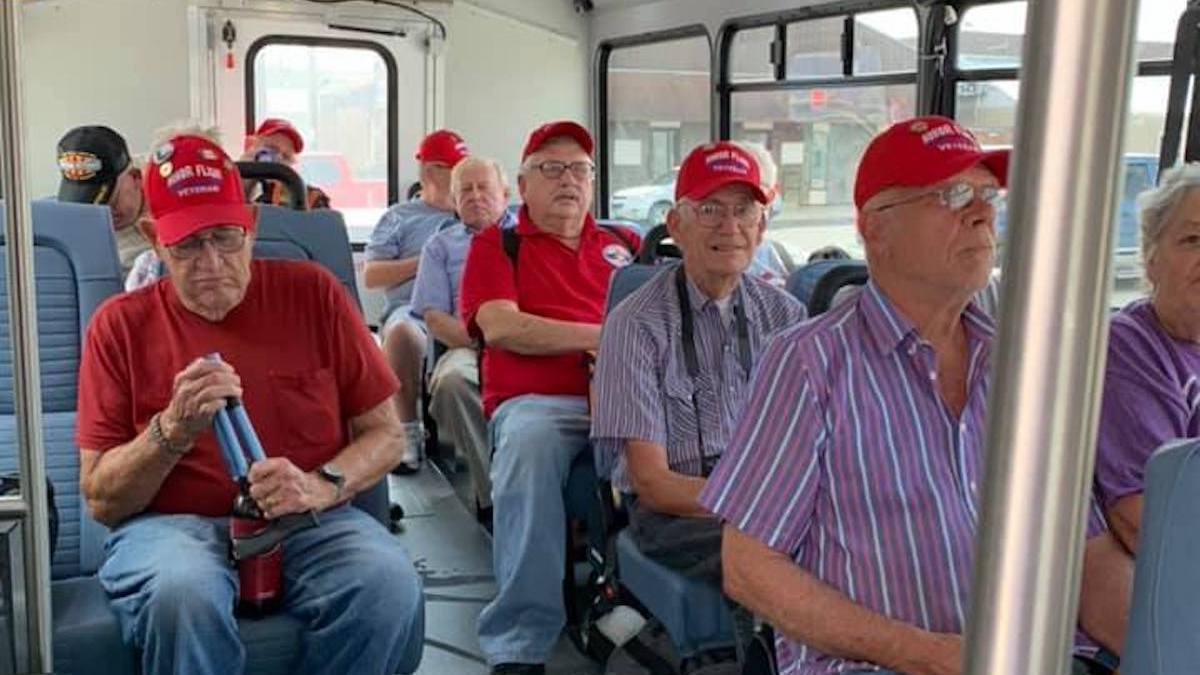Riders ride the Southern Iowa Trolley | Facebook
Riders ride the Southern Iowa Trolley | Facebook
Southern Iowa Trolley, the public transit service for seven southern Iowa counties, has seen ridership plummet more than 92% since the beginning of March, said Leesa Lester, transit director for Southern Iowa Trolley.
It’s one of several public transit services that is seeing challenges during a time when people are forced to limit their outings as much as possible due to the COVID-19 pandemic.
There are more than 30 public service transit services in Iowa and 16 of them provide transportation to Iowa’s larger rural regions. Those services consist of buses and vans that provide door-to-door service when needed.
Many of the customers are elderly and or disabled but the service is available to everyone and is often used by people who don’t have vehicles and need to get to work or appointments. Customers must schedule rides in advance.
Many people are cutting down their risk of contracting COVID-19 by going out less. Agencies are cutting hours and laying off workers as a result.
Only about 26 of the Southwest Iowa Transit Agency’s (SWITA) 76 drivers are needed now, John McCurdy, executive director of the Southwest Iowa Planning Council, told the Des Moines Register.
The rest of the drivers have been laid off. He said most of his drivers are older than 60 and wants them to stay at home because they are at higher risk of contracting COVID-19.
The Council operates SWITA.
The Des Moines Register reports that the Regional Transit Commission has suspended all services except for “life-sustaining medical trips.”
Heart of Iowa Regional Transit Agency (HIRTA) has seen a 82% decline in ridership and has laid off more than 75% of its workforce, according to Des Moines Register. HIRTA went from about 1,100 trips per day to 184.
There are concerns about the possibility of no transit services available, particularly for people in rural areas where ride-sharing services like Uber and Lyft may not even be available.
“They have medical issues that still need to be taken care of,” said Julie Castillo, HIRTA executive director and president of the Iowa Public Transit Association board. “They might not be able to get to the pharmacy. Our fear is: What happens if someone can’t get to the pharmacy?”

 Alerts Sign-up
Alerts Sign-up